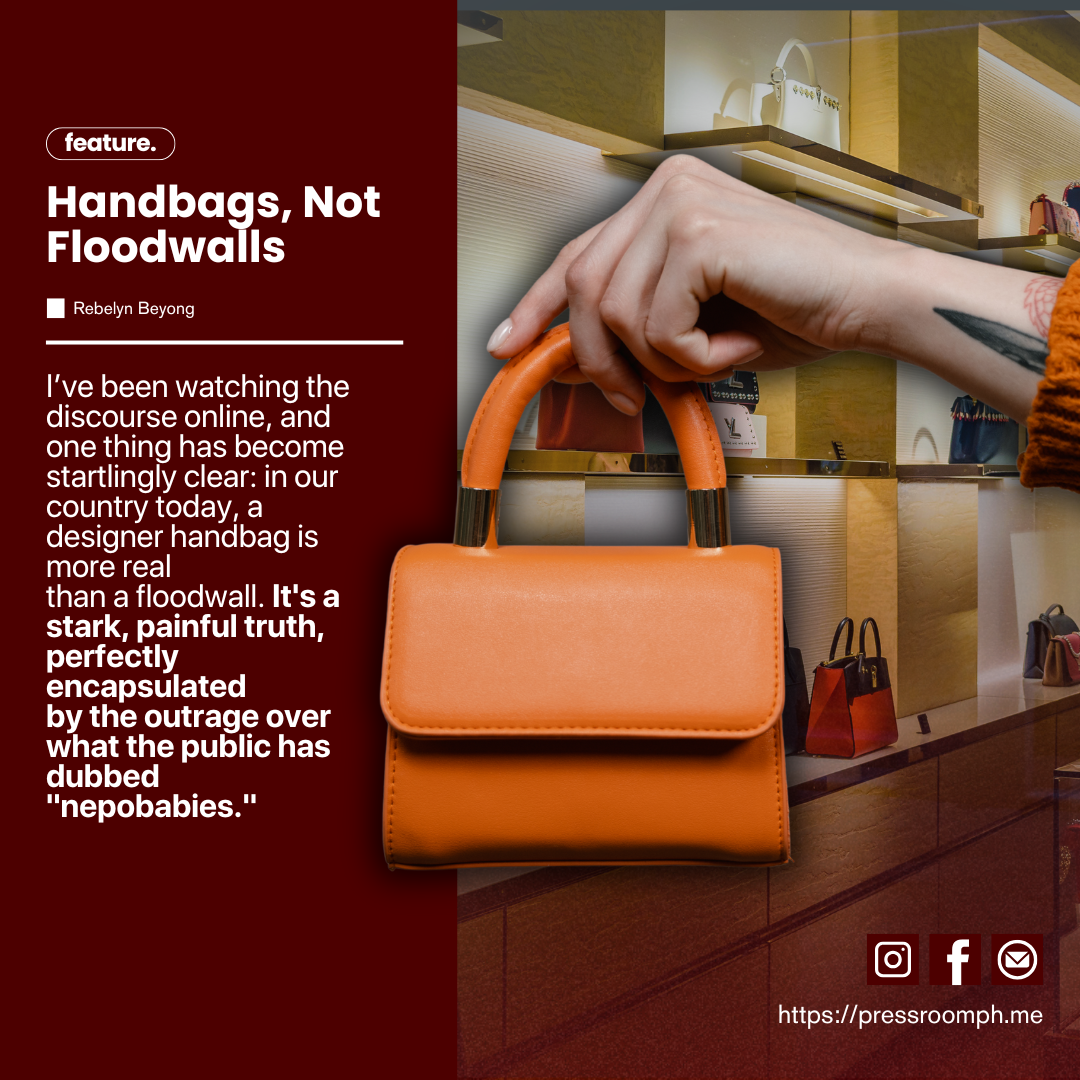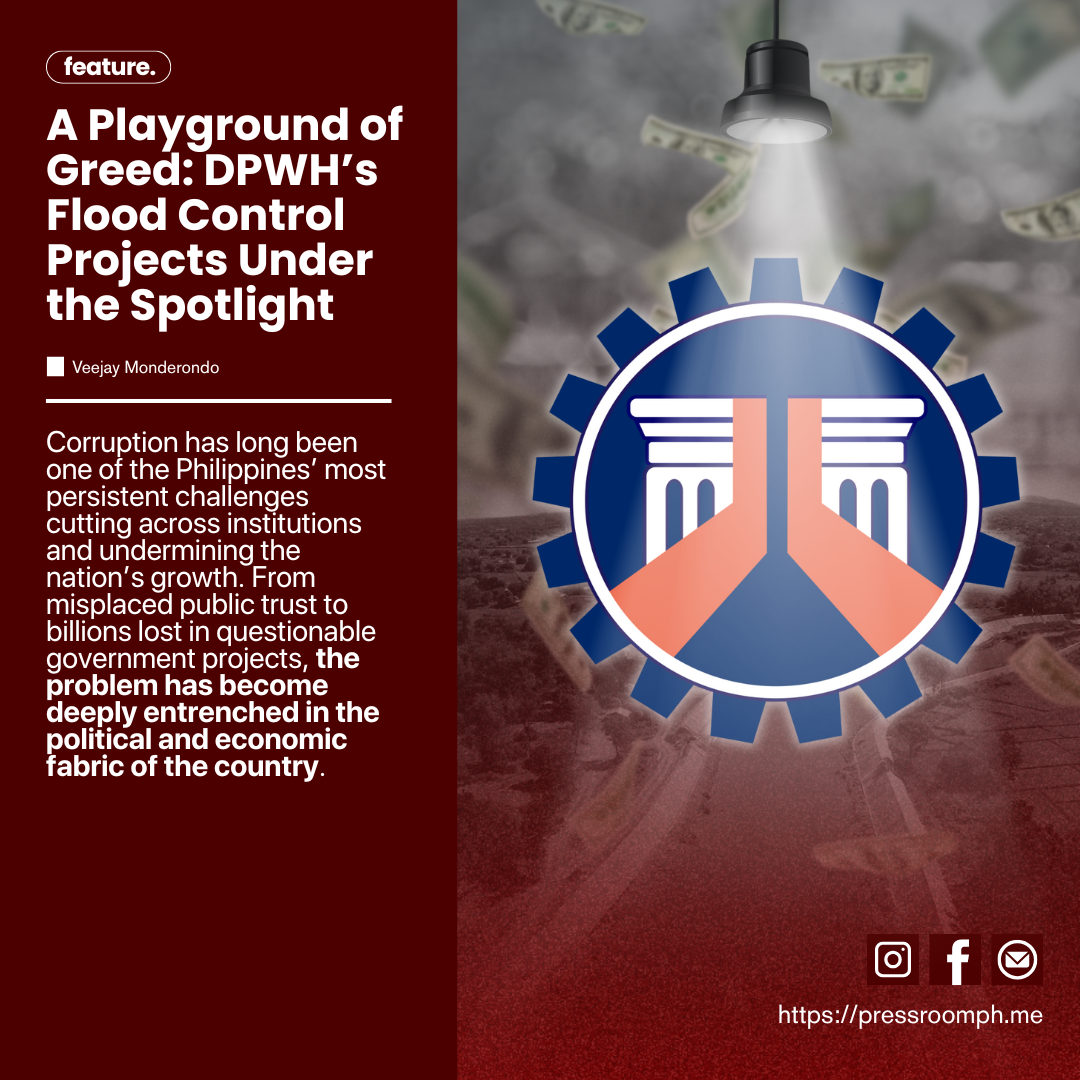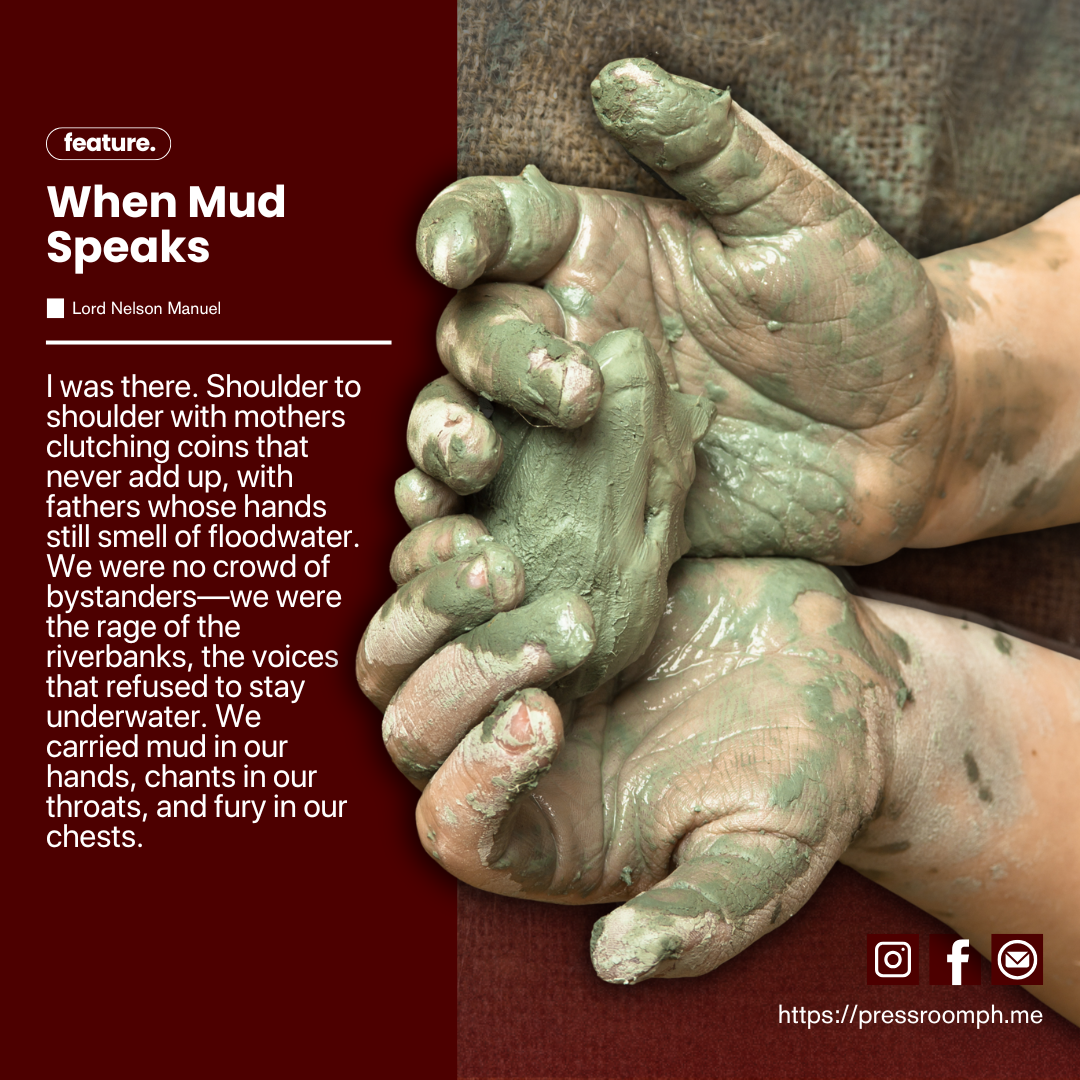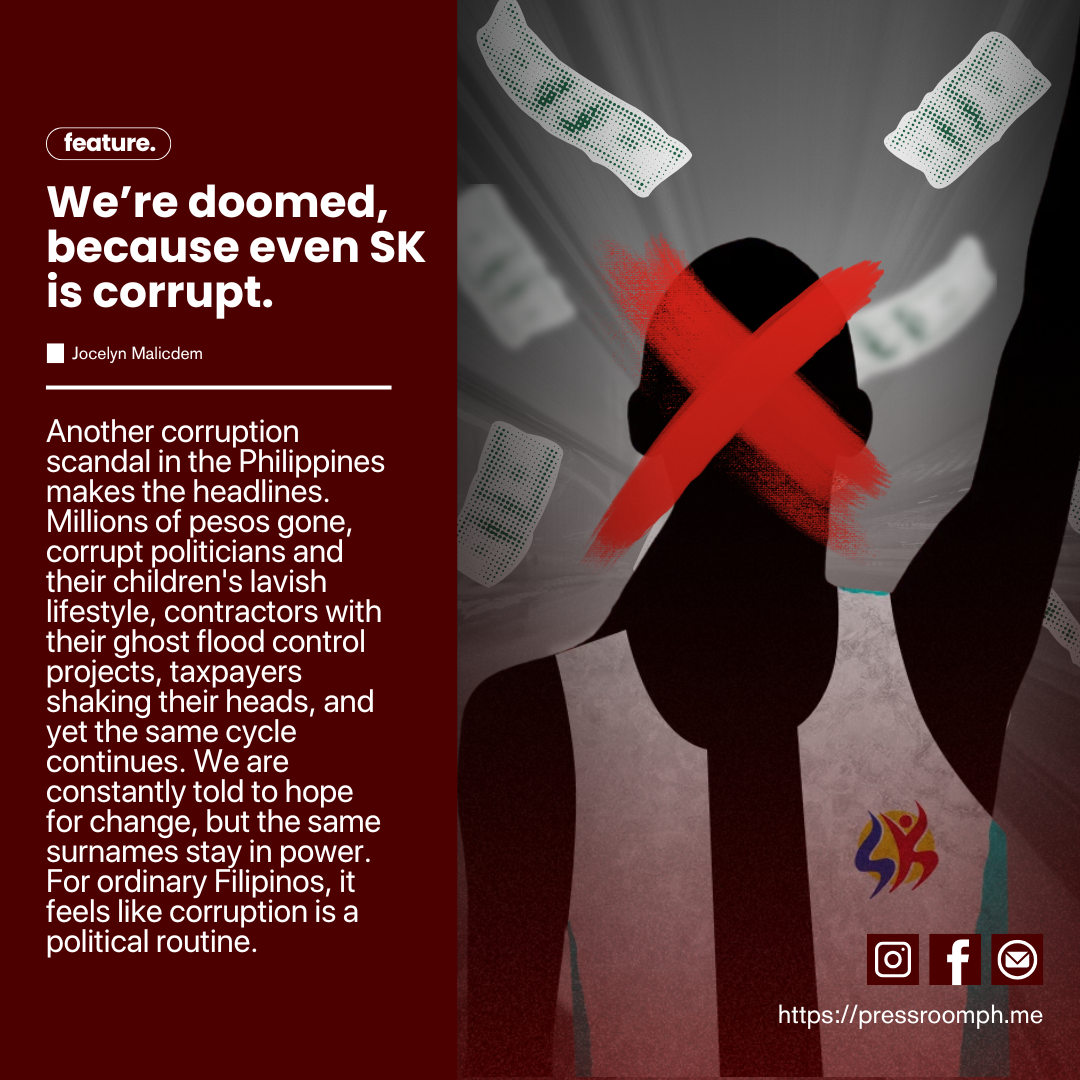I’ve been watching the discourse online, and one thing has become startlingly clear: in our country today, a designer handbag is more real than a floodwall. It's a stark, painful truth, perfectly encapsulated by the outrage over what the public has dubbed "nepobabies."
These are the children of politically connected contractors and government officials, whose online lives—documented through extravagant trips, designer clothes, and luxury cars—have become a direct, tangible mirror to the "ghost projects" and substandard flood control structures that plague our nation.
The image is haunting: as families in low-lying communities wade through waist-deep water, the beneficiaries of their suffering are posting photos from a yacht in the Mediterranean. This isn't just an issue of corruption; it's a profound moral failure playing out in real-time, a national wound made visible on a public stage.
The audacity of wealth
What strikes me most is the brazenness of it all. In an age of social media, where every purchase and vacation is meticulously documented, these young individuals have become living, breathing receipts for their parents' alleged malfeasance. The irony is staggering. While the national discourse rages over billions of pesos allocated for flood control that simply vanish, the evidence of where that money might have gone is readily available online.
We're not talking about whispered rumors or opaque bank accounts; we're talking about a P300,000 Chanel bag, an imported luxury car, or a trip to Paris—all items with a verified, undeniable value. It’s a level of public defiance that turns a once-hidden crime into an open spectacle. The public rage isn’t just about the money; it’s about the sheer gall of flaunting ill-gotten wealth while the most vulnerable among us drown, both literally and figuratively, in the consequences of its absence.
Ghost projects and broken promises
The term “ghost projects” has become a chilling part of our vocabulary. President Ferdinand Marcos Jr.'s own investigation revealed that a small group of just 15 contractors cornered nearly P100 billion in flood control projects, many of which were either substandard or, in some cases, completely nonexistent. The P55-million river wall project in Bulacan that was marked "completed" but showed no signs of construction. This isn't an isolated incident; it's a pattern of systemic plunder.
The money for these projects is real, meticulously documented in budgets and contracts. The promises of protection, safety, and a future free from inundation, were also real. But the actual work, the flood walls and drainage systems that were supposed to save lives and livelihoods, are nothing but a mirage. This is the heart of the matter: our leaders and their cronies have taken our money and given us nothing in return but empty promises and broken dreams.
From accountability to lifestyle check
In response to the public outcry, the government has been forced to act. There is a palpable shift in the air, from a passive acknowledgment of corruption to a more proactive pursuit of accountability. The Senate Blue Ribbon Committee has initiated its own inquiry, and the President has directed a nationwide lifestyle check on officials from the Department of Public Works and Highways (DPWH).
While these are welcome steps, I believe we must remain vigilant. The outrage isn't just a fleeting moment; it must be a sustained demand for justice. The online "lifestyle policing" and "nepo baby shaming" that began this movement, while controversial, served to bridge the gap between abstract reports of corruption and the concrete, luxurious lives it funds. It brought the problem out of the bureaucratic shadows and into the blinding light of public scrutiny.
The long road ahead
I find myself thinking about what comes next. The problem of corruption is, as one organization put it, a "deeper affliction" than just a few fraudulent projects. It's a systemic cancer that has been draining our country for generations. The public’s anger is righteous, and it is a powerful force for change. But to truly end this cycle, the anger must translate into sustained action. It's a long, difficult road, but I believe we're finally on our way.
Our collective challenge is to ensure that the outrage of today doesn't fade into the background but instead fuels a national resolve to demand that public money is used for the public good. We must keep asking tough questions, holding the powerful accountable, and ensuring that in the future, our flood walls will be as real as any handbag.





